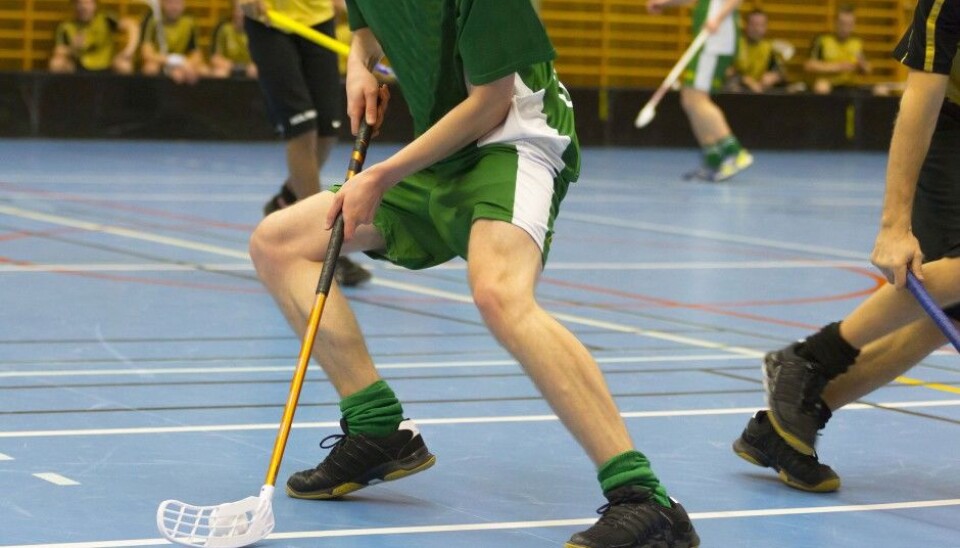
Mental training can help curb injuries
Psychological training can help reduce physical injuries in elite sports.
A Swedish study indicates that a psychological skills training programme for teams engaged in sports on an elite level could be useful in reducing overuse injuries.
Ulrika Tranæus, a researcher in sports medicine at Halmstad University and the Karolinska Institute, has investigated how psychological training on a group or team basis can help prevent injuries in floorball – an offshoot of hockey played on an indoor rink without ice.
“So far, most of the research has examined details of the human body and its joints and muscles to understand the injury mechanisms. To my knowledge, all athletes and people I have met also have emotions and thoughts leading to behaviours, which in some cases prevent injuries and in other cases might contribute to the occurrence of injuries,” writes Ulrika Tranæus in her doctoral thesis.
Injuries from 23 floorball teams
Earlier research has shown a connection between stress and the risk of injury in sports. But psychological training on a team level in this context has never been tested. I the study, Tranæus registered injuries of players in 23 floorball teams playing on an elite level during two seasons from 2010 to 2012. As floorball entails rapid movements, turns and stops, it is a sport that can cause traumatic as well as overuse injuries.
A total of 401 players of both sexes were studied, based on a test group of 11 teams, which were given six rounds of mental training during the first season, and a control group of 12 teams who did not receive such intervention. The training focused on goal setting skills, somatic and cognitive relaxation, stress management, concentration skills and emotions in sports.
Stress management and team cultures
The study revealed a number of risk factors that can lead to overuse injuries, which could be defined as bodily harm sustained from repeated action and strains. These factors are linked to ineffective strategies for coping with stress, with motivation, pain thresholds, anxiety about re-injury and harmful over-training.
The study showed that a team culture can also be important. The risk of injury rose if the players were given little social support. The risk of injury also increased with strong rivalry with others on the team, exaggerated focus on the sport, trivialisation of overuse injuries as compared to acute injuries and when there was poor communication – the team’s health personnel failed to inform about injury risks or the players neglected to mention them.
“Knowledge about which psychological factors raise the risks of injury and how these can be prevented by methods such as stress management should be included in the education of coaches in elite sports,” says Ulrika Tranæus in a press release.
Fewer injuries in the test group
The test group in the study was suffered an average of 0.45 injuries per player in the first season and 0.31 injuries in the second season. The corresponding figures for the control group were 0.53 injuries per athlete in the initial season and 0.41 in the following one. In other words, there were fewer injuries in the test group. But the difference was not large enough to be considered statistically significant.
“We would probably have obtained other results if we had changed the phrasing of questions. But as the purpose of the research was to find ways of preventing injuries through psychological skills training, the results are still very positive as the total number of injuries were reduced,” says Tranæus.
Average cost about 1,000 euros
The Swedish researcher also looked into the monetary costs of injuries in elite level floorball. In the course of the second season the 401 players covered by the study sustained a total of 188 injuries. The average cost of these injuries was about €1,000.
“This shows that mental training can also be advantageous from an economic perspective,” concludes Ulrika Tranæus.
-------------------------------
Read this article in Norwegian at forskning.no




